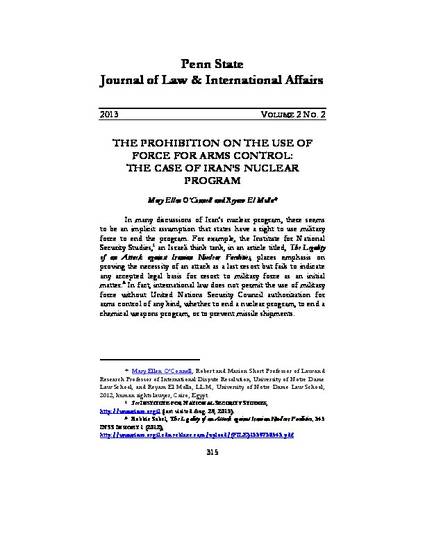
International law does not permit the use of military force against Iran to attempt to end its nuclear program. The resort to military force in international relations is covered first and foremost by Article 2(4) of the United Nations Charter. Article 2(4) is a general prohibition on resort to force that includes resort to military force for arms control, including nuclear weapons control. The Charter has two express but limited exceptions to the ban on military force. A state that is the victim of a significant armed attack may use force in necessary and proportional self-defense; the United Nations Security Council has authority to permit resort to force. Beyond the Charter, states have invited other states to assist in ending civil wars on their territories. None of these cases apply to Iran’s nuclear program, as the article demonstrates. Rather, diplomacy and lawful counter-measures are the appropriate, effective and ethical means of bringing pressure to bear respecting arms control, whether in Iran, Syria, North Korea or elsewhere. In the last months of 2013, the world has reason to hope that diplomacy will succeed in the case of Iran, and that no state will attack another in violation of international law.
To view Mary Ellen O'Connell's related remarks, delivered on February 15, 2013, click on the image below:
The Prohibition on the Use of Force for Arms Control: The Case of Iran’s Nuclear Program, 2 Penn. St. J.L. & Int’l Aff. 315 (2013).
